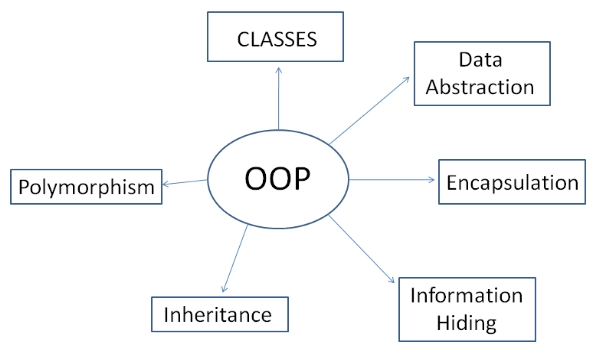Object Oriented Programming (OOP) is a programming paradigm that uses objects and their interactions to design and program applications
-
Allows the programming to block of areas of code that perform certain tasks independently of other areas in the application.
-
Encapsulation - concept of blocking off areas of code and not making it available to the rest of the program.
-
Abstraction is simplifying a complex process of a program, an enterprise software solution for example by modeling classes appropriate for it.
-
Inheritance is used where a class inherits the behavior of another class, refereed to as the superclass.
-
Polymorphism is when a class inherits the behaviours of another class, but has the ability to not inherit everything and change some of it's inherited behaviors. For example: to write a method that does something differently from the inherited method.
-
Classes - It is a blueprint that describes the state and behavior that the objects of te class all share. A class can be used to create many objects. Objects created at runtime from a class are called instances of that particular class.
OOP is to writing a program, what going through airport security is to flying.

